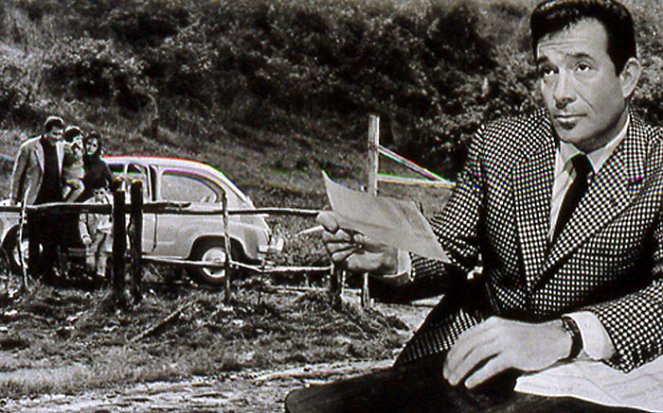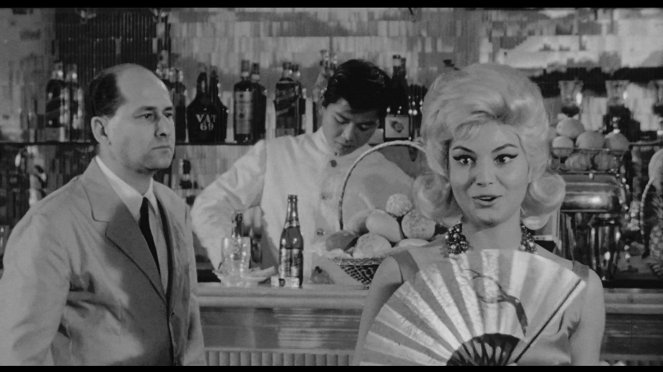Plots(1)
Conceived by the Italian producer Alfredo Bini, the multi-director portmanteau film Let’s Wash Our Brains: RoGoPaG brought together four esteemed European directors to contribute comic episodes reflective of the swinging post-“boom” era. The resulting omnibus collectively examines social anxieties around sex, nuclear war, religion, urbanisation - and the promise of a modern cinema. Roberto Rossellini’s Illibatezza (Virginity) follows an airline stewardess plagued by an obsessed American tourist whose 8mm camera enables the indulgence of a personal, and solipsistic, vision of the Ideal. Jean-Luc Godard’s Il nuovo mondo (The New World) takes place in an Italian-dubbed Paris beset by nuclear fallout, and wittily chronicles the changes that take place in the lives - and medicine cabinet - of a handsome young couple. Pier Paolo Pasolini’s scandalous La ricotta (Ricotta, as in the curded cheese) presents the goings-on around a film shoot devoted to the Crucifixion and presided over by none other than Orson Welles (playing a kind of stand-in for Pasolini himself); it is this episode that landed Pasolini with a suspended four-month prison sentence. Lastly, Ugo Gregoretti’s Il pollo ruspante (Free-Range Chicken) depicts a middle-class Milanese family flirting with the purchase of real-estate and engaging catastrophically with an antagonistic consumerist infrastructure. Let’s Wash Our Brains: RoGoPaG remains one of the definitive entries of the Sixties vogue for the multi-auteur anthology film. (Eureka Entertainment)
(more)Videos (1)
Reviews (1)
Short film, which actually has nothing in common, because it was created by directors from different schools, generations, nationalities, and themes. As a result, it is also uneven, the absolute highlight for me is Pasolini's story from the film crew environment - a masterful analysis of human selfishness and ruthlessness. I was also intrigued by the neglected Gregoretti with its dark satire of consumer society, based on well-observed situations and absurdities brought by modern prosperous society. Weaker is Rosselini's story, which is rather a stretched filmed anecdote, and I was not impressed by Godard's processing of an otherwise interesting subject. Overall impression: 70%.
()
Gallery (2)
Photo © Cinerez


